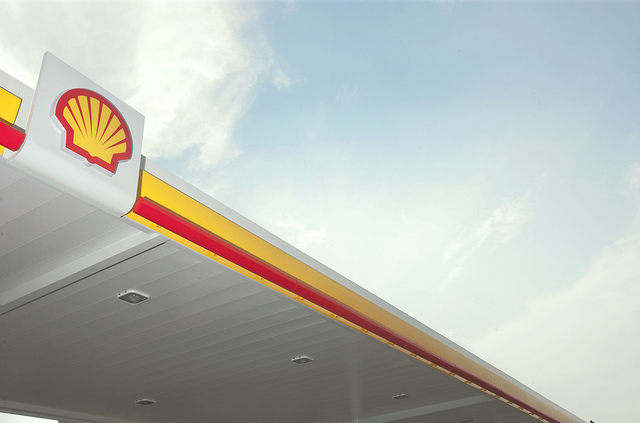Shell calls ‘peak oil’ as it sets out net-zero emissions plan
Oil major thinks dependence on the fuel will fall 1-2% a year.
11th February 2021 14:20
by Graeme Evans from interactive investor
Oil major thinks dependence on the fuel will fall 1-2% a year.

Royal Dutch Shell (LSE:RDSB) declared the passing of peak oil today as it set out how it intends to achieve net-zero emissions by 2050 and still keep shareholder returns flowing.
The Anglo-Dutch oil giant aims to build low-carbon businesses of significant scale by the early 2030s, but with upstream operations continuing to deliver vital energy supplies and the cash needed to accelerate the transition to these growth businesses.
The material cash flows from upstream should allow Shell to achieve 4% annual dividend growth. It has an ultimate target for total shareholder distributions of 20-30% of cash flow from operations once net debt has been reduced to $65 billion (£47 billion) from today’s $75 billion.
The capital allocation strategy was revealed as part of Shell’s plans to become a provider of net-zero emissions energy products and services, driven by customer-facing businesses.
Its near-term targets include selling twice as much electricity as it does today and seeking to grow its global electric vehicle network from 60,000 charge points to 500,000 by 2025.
Shell has plans for an additional 25 million tonnes a year of carbon, capture and storage capacity and wants to develop integrated hydrogen hubs to serve industry and heavy-duty transport. It is also looking to invest around $100 million a year in nature-based solutions to help customers meet their net-zero emissions target.
Oil production is expected to decline by around 1% and 2% each year as a result of disposals and natural decline, having peaked in 2019. Near term, it is still planning to invest $8 billion annually in upstream, compared with up to $6 billion in its growth businesses and between $8 and $9 billion in its ‘transition’ businesses of integrated gas and chemicals.
- Shell’s results are ugly – but not unexpected
- ii view: Total changes name as part of green drive
- The big dividends on offer from Big Oil
The company added that its own carbon emissions are likely to have peaked in 2018 at 1.7 gigatonnes per year.
Chief executive Ben van Beurden declared today: “Whether our customers are motorists, households or businesses, we will use our global scale and trusted brand to grow in markets where demand for cleaner products and services is strongest, delivering more predictable cash flows and generating higher returns.”
In a first for the oil industry, he plans to put the company’s energy transition plan to an advisory vote of shareholders at this year’s annual meeting. It will update that plan every three years and seek an advisory vote on the progress made each year.
- Shareholder voting: how you can make a real difference
- Take control of your retirement planning with our award-winning, low-cost Self-Invested Personal Pension (SIPP)
Shell is also linking progress to the pay of 16,500 staff, with their targets to lower net carbon intensity by 6-8% by 2023, 20% by 2030, 45% by 2035 and 100% by 2050.
The road to net-zero emissions was unveiled just a week after Shell swung to a 2020 loss of $21.7 billion after a year in which it was forced to cut its dividend for the first time since the Second World War, dealing a blow to pension funds and retail investors.
UBS said the guidance on oil production was likely to offer some reassurance for investors, given the importance of returns from upstream operations. The Swiss bank has a price target of 1,810p, which compares with 1,279.6p after falling 2% today.
BP (LSE:BP.), which fell 1.8p to 257.3p, has also pledged to accelerate its investment in renewable energy projects as part of a drive to cut its net emissions to zero by 2050 and help meet the Paris agreement on climate change.
Shell’s targets cover emissions from its own operations as well as those from the energy products it sells. It also includes emissions from the oil and gas that others produce and Shell then sells as products to customers.
These articles are provided for information purposes only. Occasionally, an opinion about whether to buy or sell a specific investment may be provided by third parties. The content is not intended to be a personal recommendation to buy or sell any financial instrument or product, or to adopt any investment strategy as it is not provided based on an assessment of your investing knowledge and experience, your financial situation or your investment objectives. The value of your investments, and the income derived from them, may go down as well as up. You may not get back all the money that you invest. The investments referred to in this article may not be suitable for all investors, and if in doubt, an investor should seek advice from a qualified investment adviser.
Full performance can be found on the company or index summary page on the interactive investor website. Simply click on the company's or index name highlighted in the article.